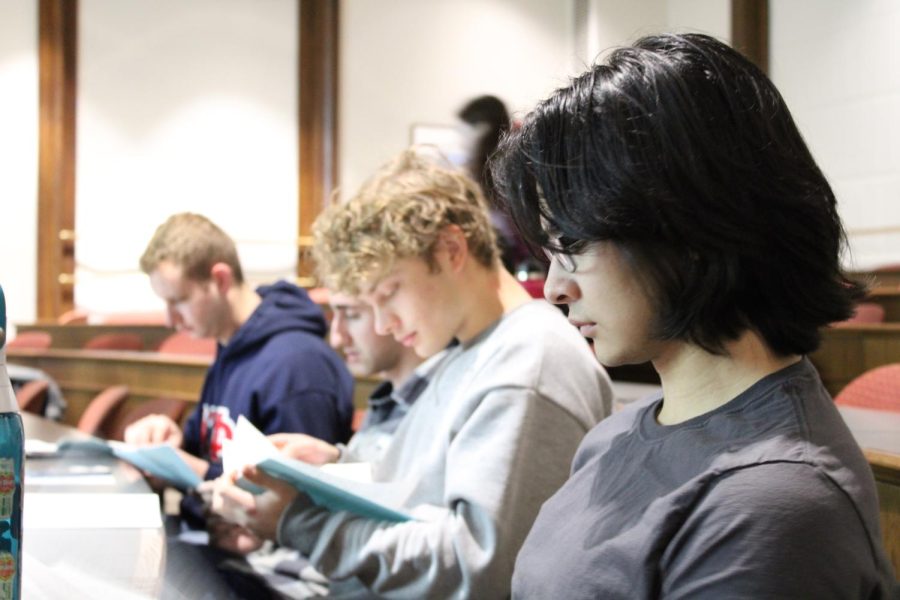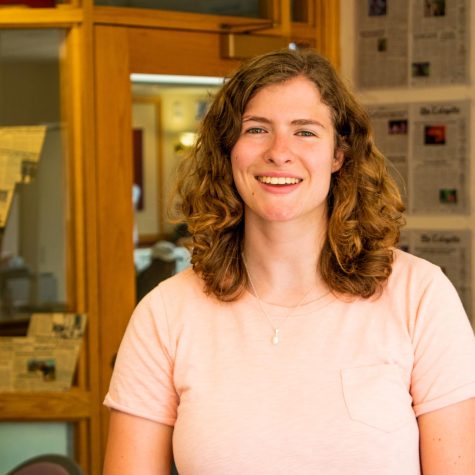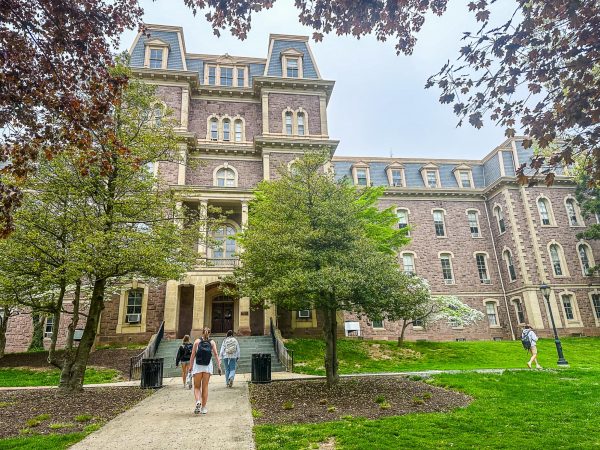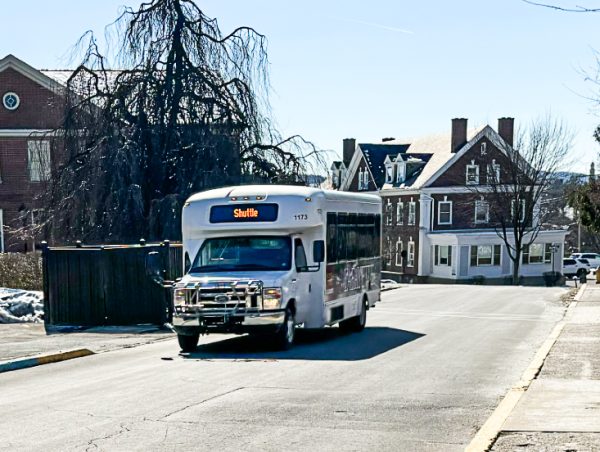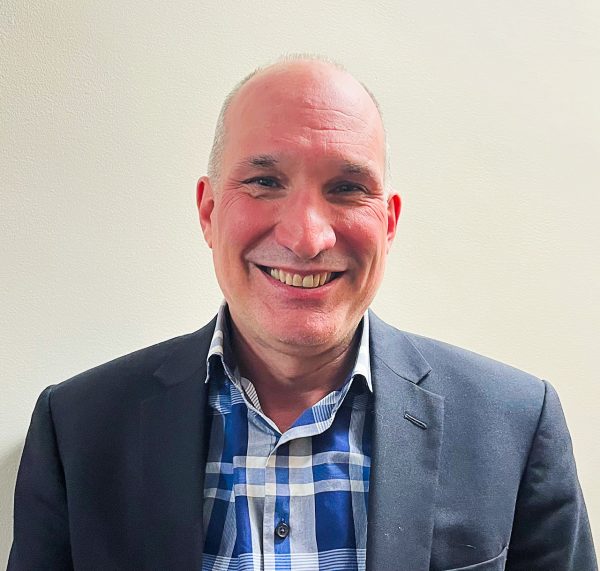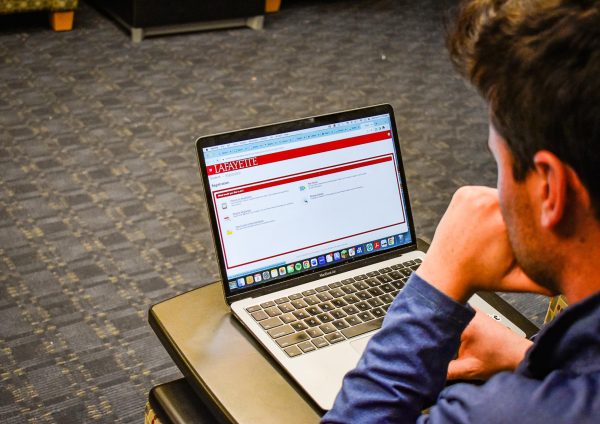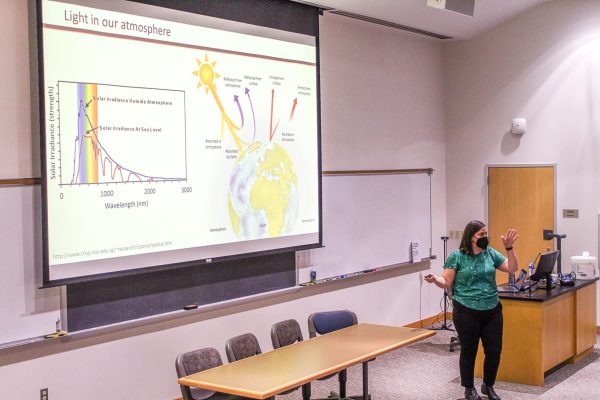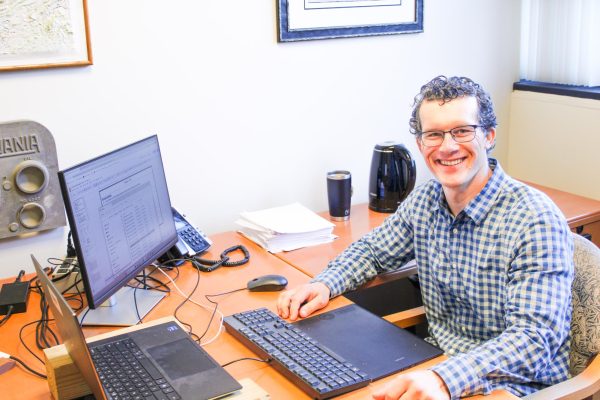Course repeat policy updated for fall 2022
Photo by Trebor Maitin for The Lafayette
Going forward, students who repeat a class will now have increased opportunity to raise their GPA. (Photo by Trebor Maitin ’24 for The Lafayette)
March 11, 2022
Beginning this fall, a new course repeat policy will allow students struggling in a class an improved opportunity to raise their GPA.
The current policy dictates that students who fail a course may repeat it, but both grades are included in the student’s GPA calculation. While the chance to repeat serves as an opportunity to boost performance and earn credit, it may not be enough to guarantee a major or cumulative GPA above the 2.0 threshold. The updated course repeat policy, however, implements a variety of changes.
The new policy dictates that both the original and repeat grades will be present on a transcript, but only the most recent grade will be factored into a GPA. It is important to note that when passed, a course can only count as a credit once, and retaking a course does not guarantee better performance or a raised GPA.
“It gets tricky mathematically when there were some failures or some low Ds to really move [a student’s GPA] above the 2.0 level when those failures and Ds continue to calculate in,” Registrar Kara Howe said.
For this reason, the new policy enables students who earn a D+ or below to retake the course, rather than having to have failed a class. This means that individuals who may not need to retake a course now have an option to do so if they did particularly poorly in it. Additionally, only the most recent grade will be factored into a student’s GPA, enabling students to quickly boost their GPAs.
“For some students, this policy can decrease the time to graduation,” Dean of Advising Tim Cox said. “For other students, it may also save them money. It costs less to repeat a course and quickly increase the GPA than to take several courses and with a slower increase.”
Unfortunately for some, the policy is not retroactive. The second attempt of a course must happen within the fall 2022 semester or later, and the new policy is clear on the fact that it will not apply to previously repeated courses.
“I think the thing that’s going to be really important, and I have a feeling we are going to be reiterating over and over, is we can’t go backwards,” Howe said.
Howe added that while the students’ disappointment at this will be the largest disadvantage of the new policy, the cutoff is a logistically necessary one.
The advantages that this policy has for current and future students are monumental, according to several members of the Academic Progress Committee, including Cox and Howe.
“With an increase in GPA, more Lafayette students have the ability to earn their degree…even if this helps one more student graduate, then we have done something right,” Cox said.
“I’m hopeful that things will roll out smoothly, and that it will give students a little bit of grace, when there were some challenging semesters behind them, to make up a little bit of ground,” Howe said.
The new policy can be attributed to the work of the Academic Progress Committee, including Cox, Howe, class deans and the faculty. It has been in the works since the last academic year when it was brought as a request to the Committee. The Committee reviewed both Lafayette’s and peer institutions’ policies, and they then proposed the new policy which earned approval in fall 2021. Since then, Howe and others have been hard at work implementing the technicalities via Banner.
“We actually coordinated with our office in each academic department to do evaluations and reviews of all the courses, so that we started off with a clear standard code for when we open registration,” Howe said.
Howe had to handle each course individually, analyzing whether courses may be repeated or not and how to apply this to the registration system and generate coding for how repeated courses will be reflected in students’ records.
Despite these logistical obstacles, Howe is optimistic that the policy update will run smoothly and help out students looking to improve their grades.



































































































